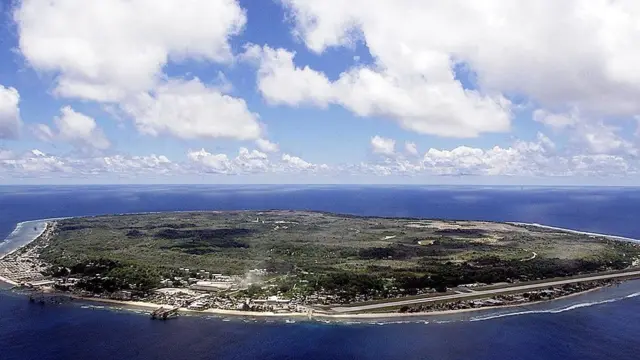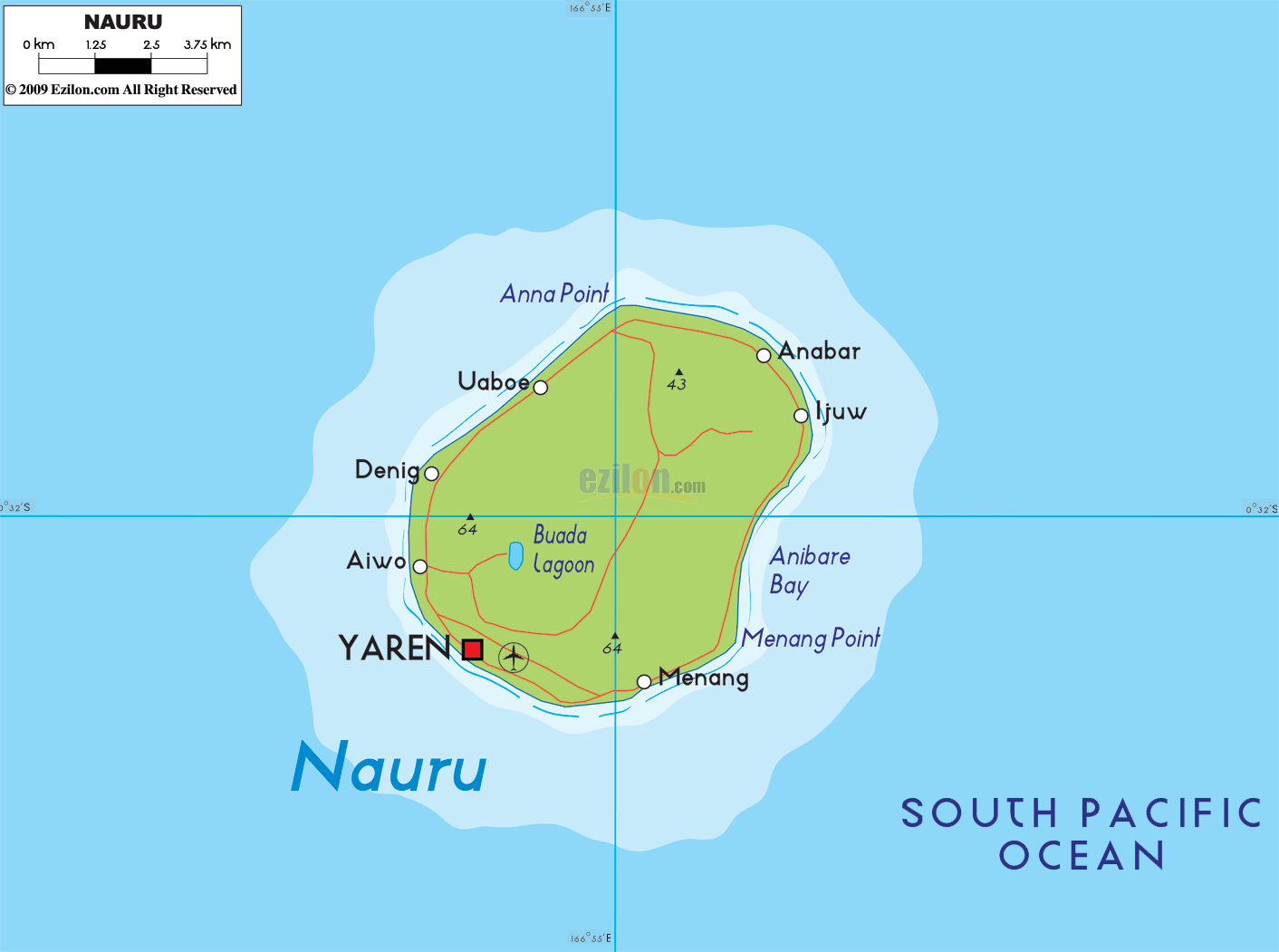by Richard Sanders, Staff Writer
Refugee advocates and scholars are commenting on Australia’s recent actions in the Pacific geopolitical landscape.
Canberra plans to invest AU$100 million over the next five years in Nauru, a small atoll measuring 21 square kilometers, home to just over 12,000 residents. This location also hosts controversial offshore detention centers that play a crucial role in Australia’s ‘stop the boats’ immigration strategy.
Political analysts interpret the Nauru-Australia Treaty signed this week by Prime Minister Anthony Albanese and President David Adeang as a tactic to reduce China’s influence in the area. Refugee advocates argue that this move essentially serves as a bribe to allow Australia to continue sending refugees to Nauru, where much of the land has been devastated by phosphate mining.
The Refugee Action Coalition reported to RNZ Pacific that there are currently around 95 to 100 detainees at the facility, primarily from China and Bangladesh. The treaty reportedly followed months of discreet bilateral negotiations, prompted by lucrative offers from China.
The agreement gives Australia a veto over various agreements that Nauru might seek with other nations. Albanese described the treaty as mutually beneficial, stating that it would enhance Nauru’s long-term stability and economic resilience while aligning with the interests of both nations for a peaceful and prosperous region.
However, geopolitical expert Benjamin Herscovitch argues that Australia’s motivations are self-serving. He noted that the detention center has bipartisan support and is integral to Australia’s immigration policies.
“They are not doing this to help Nauru; they want to keep China in check and maintain offshore processing,” he explained. Ian Rintoul from the Refugee Action Coalition echoed this sentiment, suggesting that Australia has effectively bribed Nauru to keep refugees away from its shores.
Rintoul criticized the arrangement as corrupt, claiming that Australia has turned Nauru into an extension of its domestic anti-refugee policies. He emphasized that past foreign aid has not significantly improved the lives of Nauruans.
Herscovitch pointed out that Nauru is in a strong position to negotiate with Australia, especially when China shows interest in the region. He noted that this dynamic gives Pacific nations leverage to negotiate better terms with Australia, although the specifics of how the funds will be used in Nauru remain unclear.



